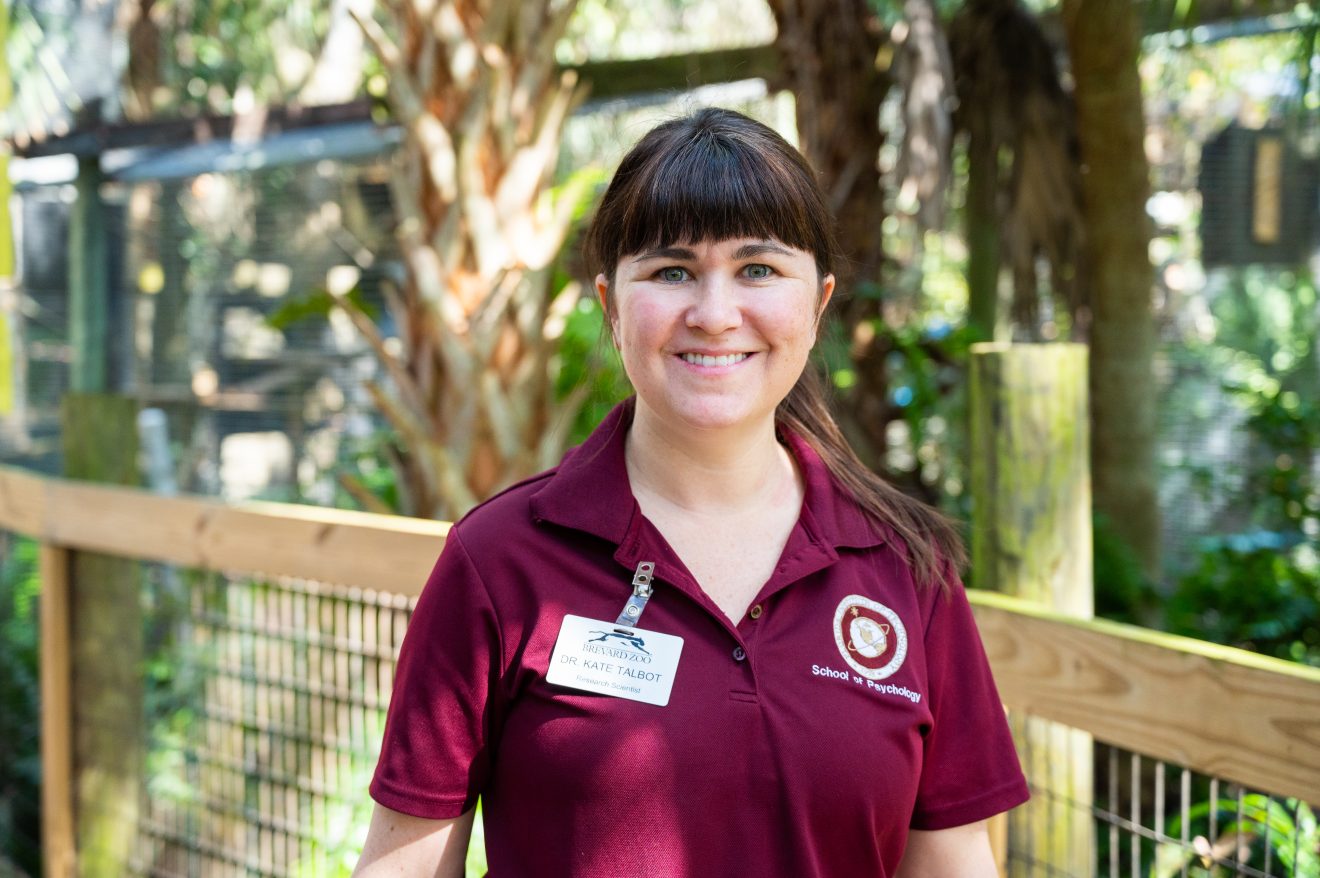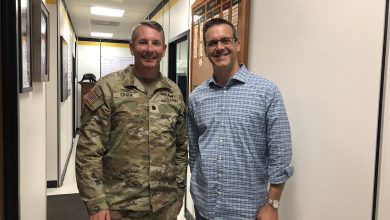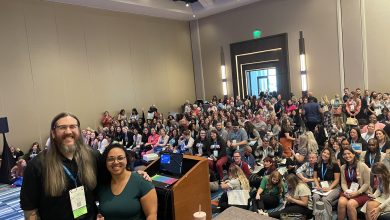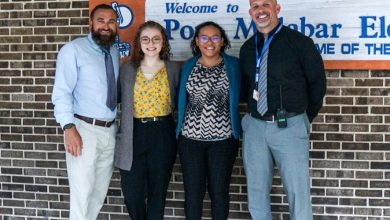Faculty Spotlight: Psychology Assistant Professor Catherine Talbot
From watching Jane Goodall as a child to working with spider monkeys as an adult, Catherine Talbot discusses her career and research journey.
By Elizabeth Bowman ’23
It all started with Jane Goodall.
Catherine Talbot remembers watching the anthropologist interact with chimpanzees on a PBS documentary as a child—she was hooked.
“Watching these documentaries showed me the animal kingdom in ways I had never seen before,” recalls Talbot, an assistant professor in the School of Psychology.
The interest stayed with her through high school and led her to work as a veterinary technician. Thinking of the job, Talbot shakes her head and laughs, “I quickly realized that was not the job for me.”
During this time, she came across an opportunity to study primates in Costa Rica, and her interest was piqued.
“Costa Rica was beautiful and opened my eyes to the field of primatology; I was determined to learn more,” she says.
“Drs. Talbot and Proctor are strong and intelligent role models that I hope to emulate in my work with animals.”
Chloe Irelan, Animal BEHAVIOR Student
After high school, Talbot attended Florida State University and took as many courses on the topic as were offered, some of which she had to audit because they wouldn’t fit into her schedule. Throughout her undergraduate career, she continued to travel abroad, working on monkey studies in South America and Africa.
“These experiences led me to pursue my master’s and doctoral degrees,” Talbot says. While completing her Ph.D. in cognitive sciences at Georgia State University, she focused on the complex evolutionary, biological and behavioral elements of different primates’ sociality.
She has worked in several settings throughout her career, such as the Center for Great Apes and the Michal E. Keeling Center for Comparative Medicine and Research. She now works alongside associate professor Darby Proctor at Brevard Zoo, where they serve as co-directors of the Animal Cognitive Research Center.
Her research primarily concerns spider monkeys. Talbot says the zoo has been a great and unique opportunity, since only a few similar facilities have spider monkeys.
“Brevard Zoo leaves the fission and fusion dynamics to be animal-managed,” she says. “This allows for the monkeys to come together in large groups and break off into smaller groups at their leisure.”
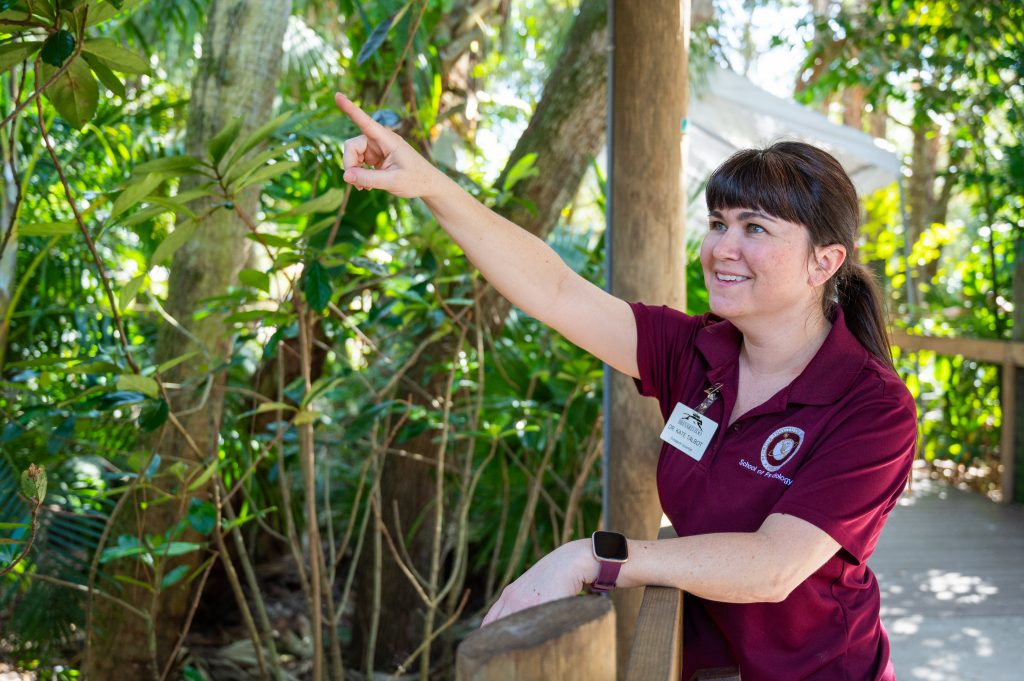
Talbot works with a few animal behavior students, including Chloe Irelan, who recently presented on the spider monkeys’ affiliation index and assists Talbot in her “bar-pull task” research.
“The work is very rewarding and keeps me inspired to continue working with animals,” Irelan says, adding that she is considering pursuing a graduate degree to become an animal behavior professor.
“Drs. Talbot and Proctor are strong and intelligent role models that I hope to emulate in my work with animals,” Irelan says.
Looking toward the future, Talbot is interested in exploring equity theory regarding spider monkeys. She has worked with 13 primate species so far and would like to work with more.
“I’d be happy to work with other land animals if the opportunity presented itself,” she says.
Learn more about Florida Tech’s spider monkey research:

